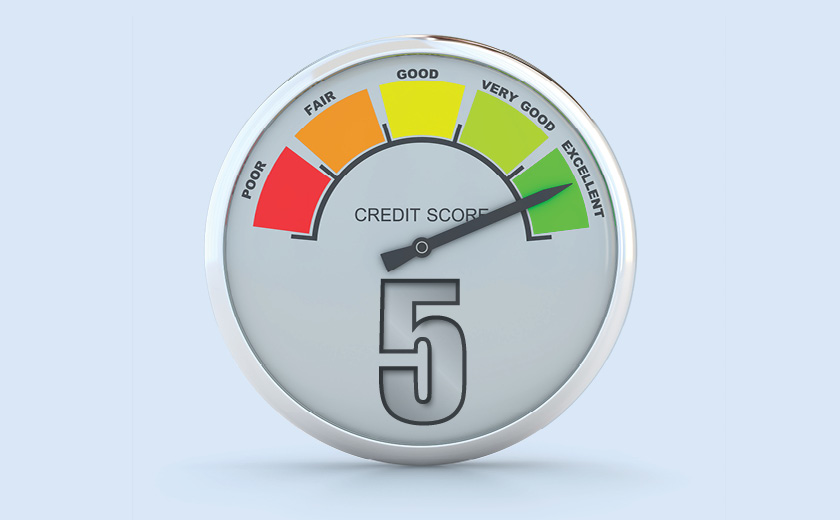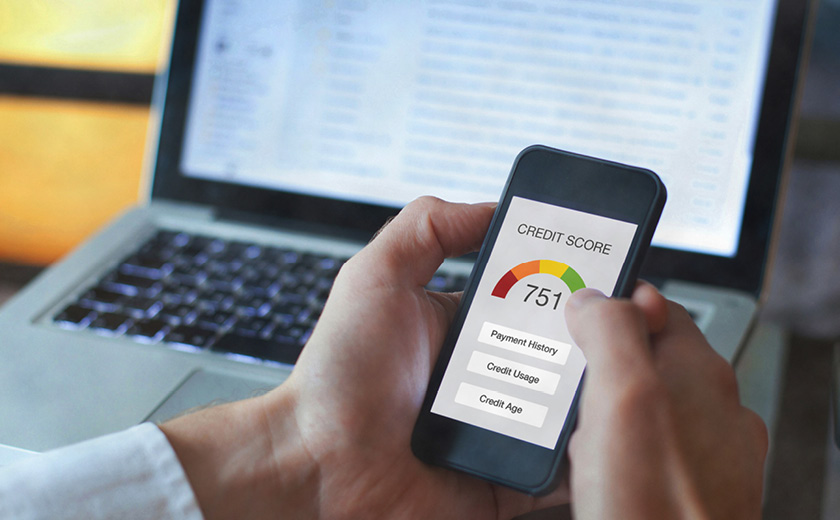It can be tempting to shrug off your credit score as just another number. But your credit score is actually a handy financial tool.
Your credit score can help you land a loan, get a better deal on loan rates – and it can even offer an early warning sign that you’ve become a target of cyber crooks.
How a credit score can help you financially.
If you’re in the market for a loan, credit card, or even a mobile phone or electricity account, your credit score can play a key role in getting the tick of approval.
Banks, telcos and even your power company will want to know how well you handle credit and debt. And that’s exactly what your credit score shows.
It gives lenders a quick insight into the way you manage money. That’s because your credit score is shaped by factors like whether you’ve stayed up to date with debt repayments – or if you’ve skipped a few bills or repayments.
Of course, your credit score isn’t the only thing a lender will consider when you apply for a loan, but it certainly carries plenty of weight.
Long story short, having a healthy credit score can be the difference between getting the thumbs up for a low-rate loan or having to regroup and apply again at a later stage.
A healthy score can help you save.
Having a high credit score doesn’t just make it more likely you’ll be approved for a loan (assuming everything else stacks up); it can also help you save with a lower interest rate.
A strong credit score tells a lender that you manage debt well – and that makes you a bank’s ideal customer.
So, the better your score, the more banks will want to offer you a loan. And that puts you in a good position to score a competitive rate.
On the flip side, the lower your credit score, the harder it can be to find a lender willing to take you on.
Some lenders do offer loans to borrowers with a few dents in their credit history. But a low score means you represent a higher risk, so you’re more likely to pay a higher interest rate.
Your credit score can be a red flag of fraud.
Identity theft is a serious issue in Australia. According to the Australian Institute of Criminology, one in four of us have been a victim of identity theft at some point
Crims can steal your identity through a variety of means, but once they have hold of identifying details, they can try to take out loans or credit in your name – debt you can be held responsible for.
Your credit score can provide an early warning sign that your identity has been stolen.
If a fraudster tries to apply for credit in your name, it will show up on your credit record. This can lower your credit score, which is why keeping regular tabs on your score can reveal identity theft in its early stages.
How to check your credit score.
Checking your credit score is easy – and costs nothing. Just head to sites such as Credit Simple or Finder to know your number.
Or, check out what your credit file says by contacting the main credit reference companies – Experian, Illion and Equifax – it’s a free service, and it won’t impact your score.
To learn more about why your credit score matters, talk to your Defence Bank team. Call our Contact Centre on 1800 033 139 or visit your local branch to find out more.
Got questions? We have the answers. See our FAQs.
1 https://www.aic.gov.au/sites/default/files/2020-08/sr27_identity_crime_and_misuse_in_Australia_results_2019_survey.pdf
Important note: This information is of a general nature and is not intended to be relied on by you as advice in any particular matter. You should contact us at Defence Bank to discuss how this information may apply to your circumstances.




